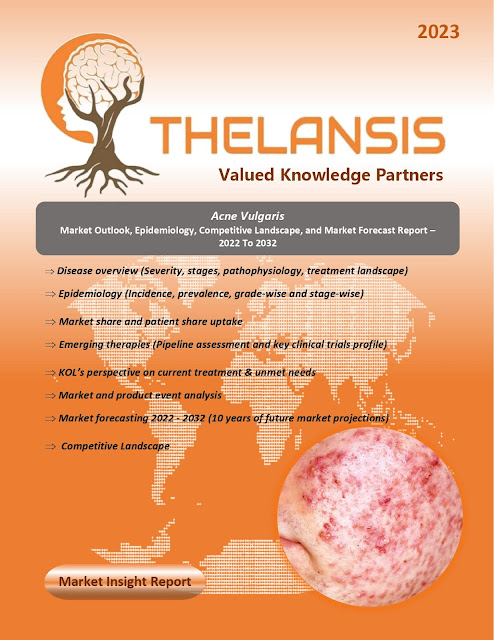Hypertension – Market Outlook, Epidemiology, Competitive Landscape, and Market Forecast Report – 2023 To 2033
Hypertension is defined as systolic blood pressure (SBP) values equal to or exceeding 130 mmHg and diastolic blood pressure (DBP) greater than 80 mmHg. It is a prevalent chronic medical condition characterized by a persistent elevation in arterial pressure. Most hypertension cases are idiopathic or essential, meaning the cause is unknown. Essential hypertension has been associated with a genetic predisposition to salt response, with approximately 50 to 60% of patients being salt-sensitive and prone to developing hypertension. Several mechanisms have been identified in the development of hypertension, including heightened salt absorption leading to volume expansion, the impaired response of the renin-angiotensin-aldosterone system (RAAS), and increased sympathetic nervous system activation. These physiological changes result in elevated total peripheral resistance and increased afterload, contributing to the development of hypertension. Potential differential diagnoses include hyperaldosteronism, coarctation of the aorta, renal artery stenosis, chronic kidney disease, and aortic valve disease. The classification and stages of hypertension, as defined by the recent American College of Cardiology (ACC) guidelines, are as follows: - Normal: SBP less than 120 mmHg and DBP less than 80 mmHg. - Elevated: SBP ranging from 120 to 129 mmHg and DBP less than 80 mmHg. - Stage 1 hypertension: SBP ranging from 130 to 139 mmHg or DBP ranging from 80 to 89 mmHg. - Stage 2 hypertension: SBP equal to or greater than 140 mmHg or DBP equal to or greater than 90 mmHg. Uncontrolled hypertension has been associated with various complications, including coronary heart disease (CHD), myocardial infarction (MI), stroke (cerebrovascular accident), either ischemic or due to intracerebral hemorrhage, hypertensive encephalopathy, renal failure (acute or chronic), peripheral arterial disease, atrial fibrillation, aortic aneurysm, and death (often caused by coronary heart disease, vascular disease, or stroke-related events). Various classes of antihypertensive medications are used for treating hypertension. The most recommended classes for initial treatment include thiazide-type diuretics, calcium channel blockers, angiotensin-converting enzyme (ACE) inhibitors, and angiotensin II receptor blockers (ARBs).
·
It is estimated that approximately 1.28
billion adults between the ages of 30 and 79 worldwide have hypertension.
Around 46% of adults with hypertension are unaware of their condition.
Thelansis’s
“Hypertension Market Outlook, Epidemiology, Competitive Landscape, and Market
Forecast Report – 2023 To 2033" covers disease overview, epidemiology,
drug utilization, prescription share analysis, competitive landscape, clinical
practice, regulatory landscape, patient share, market uptake, market forecast,
and key market insights under the potential Hypertension treatment modalities
options for eight major markets (USA, Germany, France, Italy, Spain, UK, Japan,
and China).
KOLs insights of Hypertension across 8
MM market from the centre of Excellence/ Public/ Private hospitals participated
in the study. Insights around current treatment landscape, epidemiology,
clinical characteristics, future treatment paradigm, and Unmet needs.
Hypertension
Market Forecast Patient Based Forecast Model (MS. Excel Based Automated
Dashboard), which Data Inputs with sourcing, Market Event, and Product Event,
Country specific Forecast Model, Market uptake and patient share uptake,
Attribute Analysis, Analog Analysis, Disease burden, and pricing scenario,
Summary, and Insights.
Thelansis Competitive Intelligence (CI) practice
has been established based on a deep understanding of the pharma/biotech
business environment to provide an optimized support system to all levels of
the decision-making process. It enables business leaders in forward-thinking
and proactive decision-making. Thelansis supports scientific and commercial
teams in seamless CI support by creating an AI/ ML-based technology-driven
platform that manages the data flow from primary and secondary sources.
Tags: Hypertension,
Hypertension market outlook, Hypertension competitive landscape, Hypertension market forecast, Thelansis, Primary market research, KOL
insights, Competitive Intelligence (CI)




Comments
Post a Comment